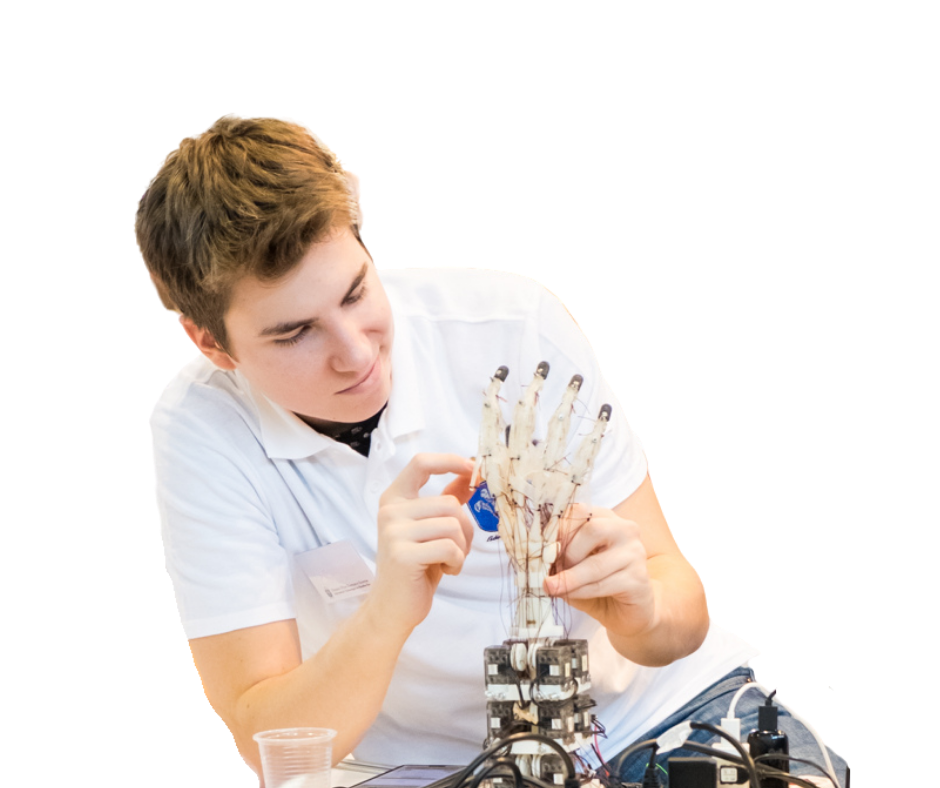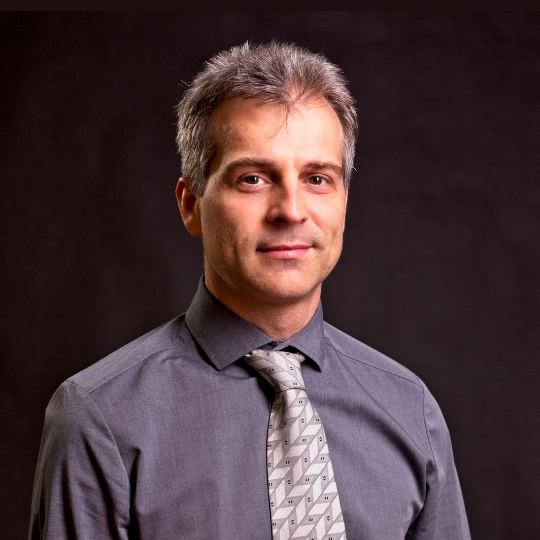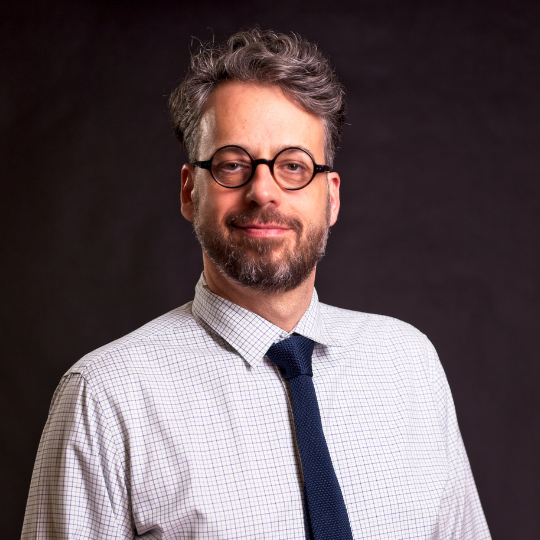
Innovation at the Interface of Life Sciences and informatics
Info-bionics Engineering MSc
More information at our online open day!
Thursday 8 January 2026, 3.00 pm CET
Shape the Future with Your Knowledge!
The field of info-bionics integrates computer science, electronics, and biotechnology. The goal of our interdisciplinary Master's program in Info-Bionics is to enhance students' complex modeling competencies and develop proficiency in operating and designing tools. A deep understanding of biological processes and measurements strengthens the development of engineering solutions, devices, computational algorithms, and models used in biological systems.
Practice-Oriented Education, Broad and Marketable Knowledge
Key Focus Areas
Medical Imaging
Robotics,
prosthesis
Brain-Computer Interface
Neural Electrodes
Nano-
biotechnology
Bioinformatics
Specializations
In the Bionic Interfaces specialization, we focus on the tools needed for human-machine interfaces. Focused knowledge is necessary to understand how to interface with the human body in different ways and to obtain a control signal or feedback sensory information. These can be used to drive prosthetic limbs or replace lost sensory or locomotor functions. Useful new and innovative knowledge can be obtained in the fields of sensory robotics for medical rehabilitation devices, performance measurement and improvement for athletes, and ways to interact with computers.
In the neural data science specialization, our focus is on the data set and its interpretation generated in quantitative neuroscience research. Applied neuroscience, data science skills, and machine learning are required knowledge to interpret the large amount of data generated during quantitative neuroscience measurements and to apply it in the development of diagnostic or therapeutic tools. Students who choose this specialization will have the opportunity to gain insight into the broad spectrum of quantitative neuroscience research, in terms of the tools and the data, and the data processing algorithms. By applying modern machine learning methods and tools, students can gain useful knowledge with new and innovative potential and become part of a new era of quantitative neuroscience research and development. The specialization is taught in close cooperation with research laboratories and researchers from IEM, RCNS, and HAS.
The specialization will not be announced in the 2025/26/II academic year.
In the bio-nano sensors and imaging devices specialization, we focus on the new devices for multimodal medical imaging. Specialized knowledge is required to understand the principles of operation of different sensor and actuator devices, as well as the interaction of matter and photons (electromagnetic radiation). Applying this, we can create complex devices that allow us to look in ever greater detail into the functioning of our tissues, even at the molecular level, in an increasingly non-invasive way. By further developing such devices, new features can be added to both the diagnostic and therapeutic capabilities of medical imaging. By mastering them, useful knowledge can be acquired within this specialization, including new and innovative tools and devices.
LECTURERS

Kristóf Iván
Associate professor
Lecturer and researcher in molecular chemistry and biomicrofluidics, Head of the Biomicrofluidics Laboratory, Head of Program for the Info-Bionics Engineering MSc, and former Dean of Pázmány ITK.

István Ulbert
professor
Lecturer and researcher in electrophysiology, materials science, computer science, neurology, and optical imaging, Head of the Integrative Neuroscience Research Group at Pázmány ITK, Doctor of Sciences (DSc).

Tamás Freund
professor
Széchenyi Prize-winning neurologist, President of the Hungarian Academy of Sciences, and Head of the Theoretical Neuroscience Research Group at Pázmány ITK.

Attila Csikász-Nagy
professor
Biomedical engineer, lecturer, and researcher in systems biology and bioinformatics, Head of the Systems Biology of Molecular and Cellular Networks Research Group, and Deputy Dean for Research and Innovation at Pázmány ITK.